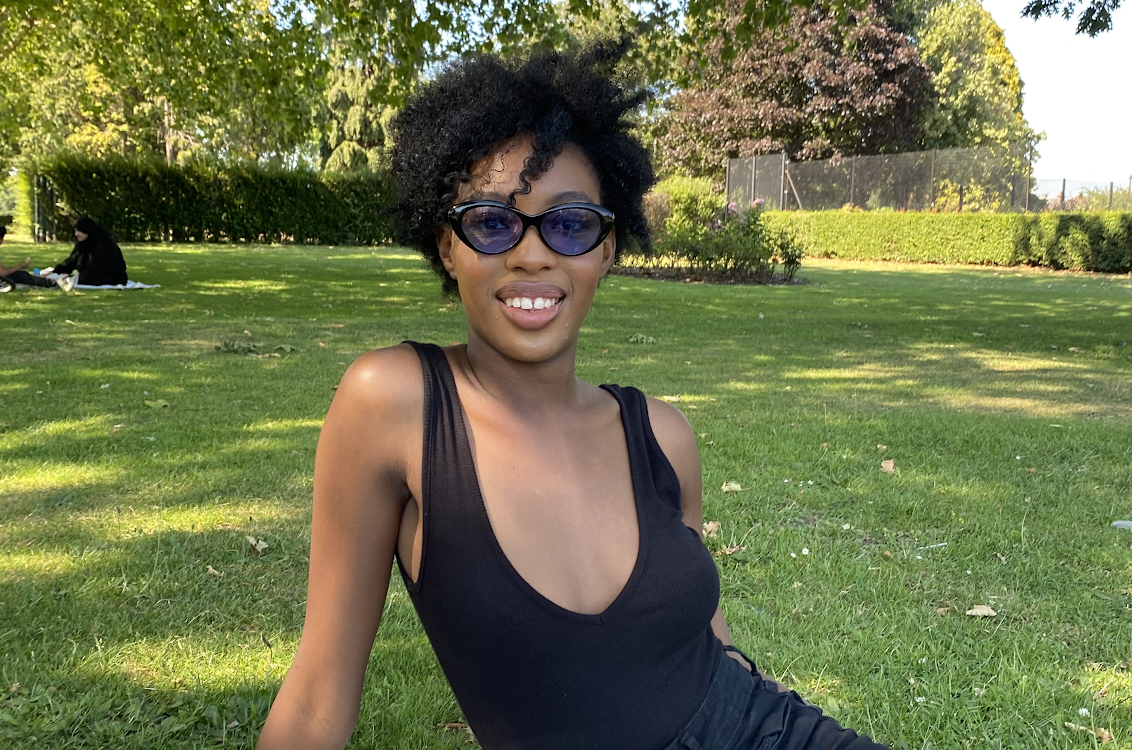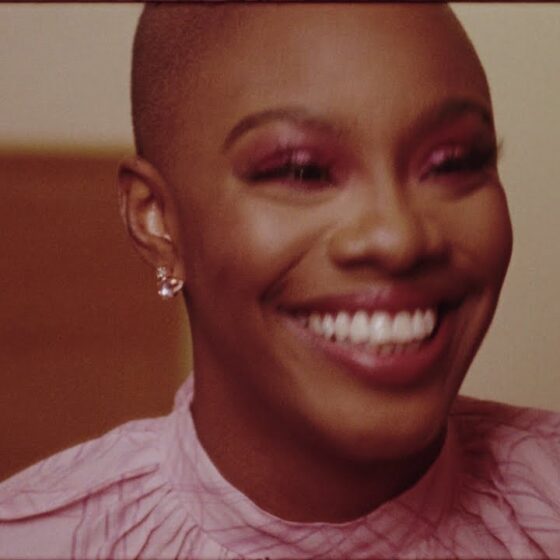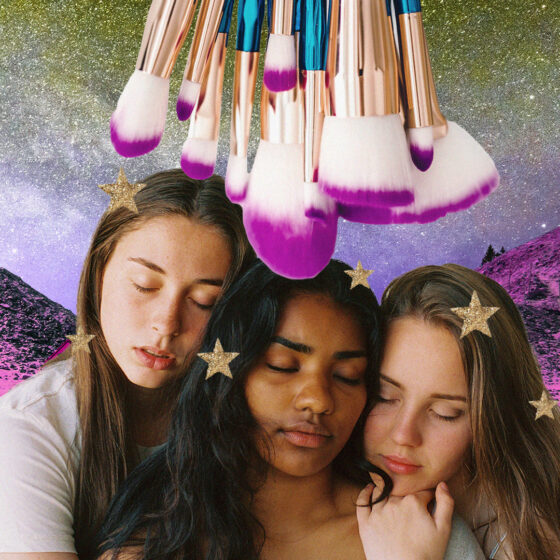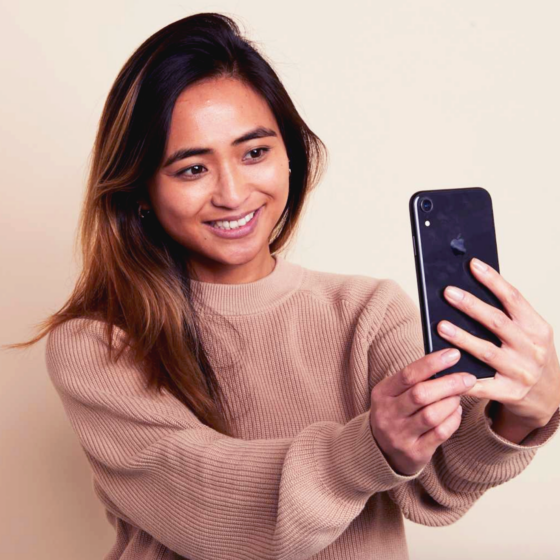As lockdown has started to ease and salons begin reopening again, many people will be rushing to get their hair done. But, I don’t think I’ll be one of them. At the start of the lockdown, the idea of being away from my hairdresser for several months made me feel anxious. Though I think I have a healthy relationship with my hair, I as many other Black women have internalised the idea that our hair is ‘difficult’ to manage. Meaning my natural hair requires a lot more effort and energy then it does when I wear a wig or have braids. Now four months later I have a completely different understanding and appreciation for my hair.
For most Black women, the relationship we have with our hair is complex. Due to colonialism, society has taught us that our natural hair is inferior compared to European hairstyles. The natural hair movement was created to tackle those ideals. And though I think for the most part the natural hair movement has had a huge impact on the Black community, many of us still need to unlearn European ideals about our hair. One of them being that natural our hair is hard to maintain. This is to say, many of us depend on someone else to do our hair especially when it comes to our natural hair or protective styles.
Black women have internalised the idea that our hair is ‘difficult’ to manage.
As a child, I didn’t hate my hair, I was actually quite indifferent about it. This meant that I didn’t have any desire to learn how to do my hair by myself. Now that I’m older I know the simple basics of how to do my hair (washing, blow drying it, twists outs) but lockdown has allowed me to see how easy doing my hair is. I see my hair in a completely different light. When my hair is out my go-to is usually a wash and go.
But, over the past couple of months, I’ve learned how to achieve a slick down hair look, how to add a ponytail to my hair, and more so just a general understanding of my hair. Such as my hair porosity (how much moisture your hair can retain.) Now that I know that I have low porosity hair this affects what I do to my hair and the products I use.

I’ve started using the Blueberry Bliss Hair mask which has helped me which makes my curls feel super soft. Jamaican Castor Oil is and will always be one of my natural hair must-haves. When I see my edges getting a bit sparse as soon as I add some of this oil, they come back.
Gummy Hair Gel has changed my life. As anyone with 4C hair knows, finding something that can slick down your hair always feels like a myth. This gel goes a long way with a small amount of product. I’ve ended up having a slicked ponytail in for days with the help of this gel.

Twenty-two-year-old Pris Alao who lives in London says her relationship with her hair before the lockdown wasn’t unhealthy but she definitely relied on people to do her hair.
She tells Restless “I was doing a lot of diverse hairstyles like braids or wigs but it would always be in a salon because I didn’t really know how to do much with my hair. “I never knew how to cornrow which was so upsetting to me but I learned how to do cornrows, do knotless braids, Fulani braids with extensions, feed-in cornrows and I have some chunky knotless braids in right now. I’ve learned that this whole idea that 4C hair is so difficult and hard is all just a scam really as our hair has been framed within the white gaze.”
There’s no reason we should expect to just wake up and leave the house and it will just be fine and cool. There’s nothing wrong with putting effort in with your hair just because white people don’t doesn’t mean we shouldn’t. “Taking control of my own hair in the last few months is fun and a lot easier than you think” she adds.

Pris’ favourite products during lockdown are:
Shea Moisture Strengthen and Restore Leave-In Conditioner. “This locks in moisture and has my hair super soft and easy to detangle.”
Jamaican Black Castor Oil “is great for hair growth and shine.”
Shea Moisture Jojoba Oil & Ucuuba Butter Tension Relief Serum “is amazing for super tight braids. It relieves any itchiness, hydrates the scalp plus smells amazing.”
Jacklyn Agu who is also twenty-two from North London tells me that she didn’t have a relationship with her natural hair prior to lockdown. “During lockdown, I was stuck with my natural hair and I just had to learn how to do it. I knew how to wash it and things like that but I didn’t put that much effort into my hair. I didn’t really care for it. Now I’m actually researching all these new things and learning about products and black own hair products especially. So I’ve bought some and now my relationship with my hair changed drastically.” Jacklyn has been natural for five years and has mostly 4B hair with 4A/4C hair strands.
The products she’s been using during lockdown include:
– Aunt Jackie’s oh so clean moisturising and softening shampoo
– Aunt Jackie’s soft and sassy softening conditioner
– Aunt Jackie’s quench leave-in conditioner.
“I’ve heard nothing but great things about these products from my friends and what they’ve said is true. It’s how each product makes your hair feel after you’ve used them: extremely soft and it makes your hair easier to style once dried.”
Both Priscilla and Jacklyn say they feel like they’re relationship with hair salons will change as lockdown is easing. “Doing your hair is time-consuming but if I had the free time then I’d do it myself for sure I’d also be able to save money too. I have a lot of salon PTSD as some hairdressers don’t know how to do anything with natural hair even if the hairdresser is Black. For example, some hairdressers have pulled my hair so tight I would bleed from doing cornrows so tight as I have a very sensitive scalp. Knowing that I can do these styles and look after my own hair and scalp and do it the way it needs to be treated is very important. Unless I find a hairdresser who knows exactly what they’re doing I’m happy to continue doing my hair by myself. But as I said for sake of time I might have to do a quick trip” Says Priscilla.
It’s nice to know that I can actually do things with my hair.
Jacklyn says she’s happy that she’s saved money by doing her hair by herself and wants this to continue. “In terms of money, I’m going to save so much as I’ve been saving a lot during lockdown. I wouldn’t mind paying for someone to do my hair if it’s like my birthday. I don’t mind doing that. But other than that, there’s no point in me spending all that money when I can just now actually do it myself and I do it my hair the way I actually like it I feel like I’ll still go to the salon when I’m not bothered to do it. But now if I want to do twists in my hair I can literally go to the shops, buy the hair and do it. It’s nice to know that I can actually do things with my hair.”
One of the biggest takeaways I got from having my hair since mid-March is doing my natural hair is easier than you think. There’s a myth that natural hair is hard to do and through lockdown, I’ve been able to realise that this isn’t true. It might take a little bit more effort but it isn’t that hard as everyone gives off.
Though lockdown is slowly starting to ease, it’s not too late for you to start watching some YouTube Videos and get some new products.
Your hair and your money will thank you for it.










